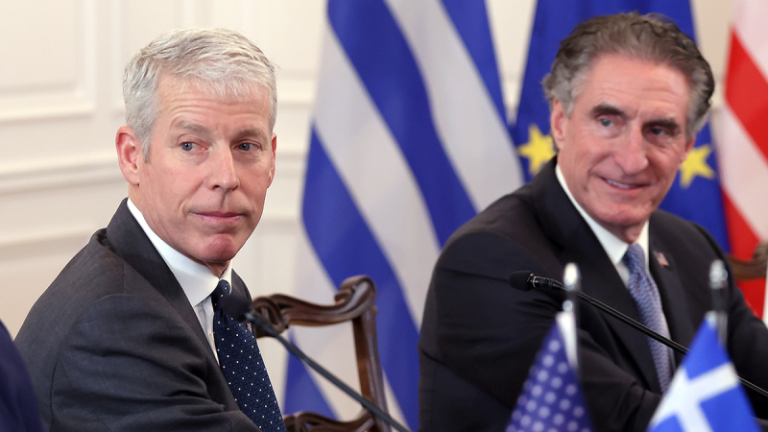After a self-imposed political exile to Ireland after President Donald Trump’s re-election, Rosie O’Donnell quietly returned to the United States.
During an interview with Chris Cuomo on his new show, ‘SiriusXM’s Cuomo Mornings,’ the 63-year-old actress revealed she recently returned to the country to visit her family. The actress moved to Ireland with her teenage daughter in January 2025, just prior to President Trump’s second inauguration.
‘I was recently home for two weeks, and I did not really tell anyone,’ she told Cuomo. ‘I just went to see my family. I wanted to see how hard it would be for me to get in and out of the country. I wanted to feel what it felt like. I wanted to hold my children again. And I hadn’t been home in over a year.’
She then shared that she ‘wanted to make sure that it was safe’ for her and her daughter to come back over the summer so that they could be with family during her break from school.
When speaking to Cuomo, she went on to discuss how America ‘feels like a very different country’ to her than when she lived here because she hasn’t ‘been watching the news’ or keeping up with ‘American culture television’ while living in Ireland.
‘I’ve been in a place where celebrity worship does not exist,’ she explained. ‘I’ve been in a place where there’s more balance to the news. There’s more balance to life. It’s not everyone trying to get more, more, more. It’s a very different culture. And I felt the United States in a completely different way than I ever had before I left.’
O’Donnell claimed she doesn’t ‘regret leaving at all’ and feels she did ‘what I needed to do to save myself, my child and my sanity.’
‘And I’m very happy that I’m not in the midst of it there because the energy that I felt while in the United States was — if I could use the most simple word I can think of — it was scary,’ she added. ‘There’s a feeling that something is really wrong, and no one is doing anything about it.’
The bad blood between O’Donnell and President Trump goes back 20 years, when she criticized him while on ‘The View.’ They continued to throw jabs at each other over the years, with O’Donnell telling the Irish radio show ‘Sunday with Miriam,’ ‘He uses me as a punching bag and a way to sort of rile his base.’
After announcing she had moved to Ireland, the star shared she was applying for Irish citizenship during an interview with the U.K.’s Daily Telegraph in October 2025.
‘What great news for America!’ White House spokesperson Abigail Jackson told Fox News Digital about the news at the time.
President Trump had previously threatened to revoke O’Donnell’s American citizenship twice before through posts on Truth Social.
‘Because of the fact that Rosie O’Donnell is not in the best interests of our Great Country, I am giving serious consideration to taking away her Citizenship,’ he wrote in July 2025. ‘She is a Threat to Humanity, and should remain in the wonderful Country of Ireland, if they want her. GOD BLESS AMERICA!’
He later renewed the threats in September 2025, writing, ‘She is not a Great American and is, in my opinion, incapable of being so!’
O’Donnell fired back against the president’s threats, using the Constitution as her defense against the President.
‘He can’t do that because it’s against the Constitution, and even the Supreme Court has not given him the right to do that. … He’s not allowed to do that. The only way you’re allowed to take away someone’s citizenship is if they renounce it themselves, and I will never renounce my American citizenship,’ the ‘Now and Then’ star said. ‘I am a very proud citizen of the United States.
‘I am also getting my citizenship here so I can have dual citizenship in Ireland and the United States because I enjoy living here,’ she added. ‘It’s very peaceful. I love the politics of the country. I love the people and their generous hearts and spirit. And it’s been very good for my daughter. But I still want to maintain my citizenship in the United States. My children are there. I will be there visiting and go to see them. And I have the freedom to do that, as does every American citizen.’
Under the United States Constitution, a president does not have the power to strip the citizenship of someone born in the country, meaning since O’Donnell was born in New York, her citizenship is protected by the 14th Amendment.










